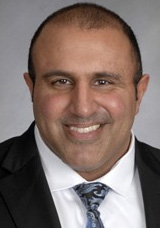
WHEP Scholar Aria Attia
Drexel University College of Medicine, Class of 2021
HPV infection causes cancers of the cervix, vagina and vulva in women, the oropharynx and anus in both sexes, and penile cancer in men. HPV vaccine coverage among U.S. adolescents has steadily increased since vaccine licensure but remains well below the 80% target set forth by the Healthy People 2020 initiative. A number of barriers have hindered increased coverage including: lack of a strong HCP recommendation to vaccinate, low acceptability of vaccination of males, sexualization of the vaccine and non-uniform timeline for vaccination administration.
HCPs may not recommend vaccination at the appropriate times due to time constraints, lack of perceived necessity at the patient’s age, availability of insurance coverage, safety and/or efficacy concerns, and discomfort with discussion of sexuality. Some providers feel that discussion of vaccine risks and benefits (including issues of sex with HPV transmission in particular) might alarm rather than reassure patients and take up too much time.
To overcome some of the problems caused by reliance on HCP recommendation, different venues for vaccination such as schools or pharmacies may be utilized, as we have learned from the exemplars in Australia, U.K., Denmark and Scotland. Currently, the HPV vaccine is not a national requirement for entry into the secondary school system. Only Virginia and Washington, D.C., require HPV vaccination of girls entering the sixth grade, and Rhode Island requires both boys and girls to be vaccinated by the seventh grade.
Finally, it is important to frame the HPV vaccine as routine and/or as a cancer-prevention vaccine instead of a vaccine for a sexually transmitted disease. This point is critical and serves to circumvent HCP reluctance to discuss sexuality with patients. Parents are more likely to oblige vaccination when it is framed in such fashion. These and other strategies are necessary to integrate a strong recommendation from providers amidst a backdrop of supportive knowledge and positive influence. The HPV vaccine is a vaccine against cancer and should be aggressively marketed as such. As health care providers, we need to make every effort to overcome barriers, real or perceived, to protecting our population from potential morbidity and mortality associated with this virus.